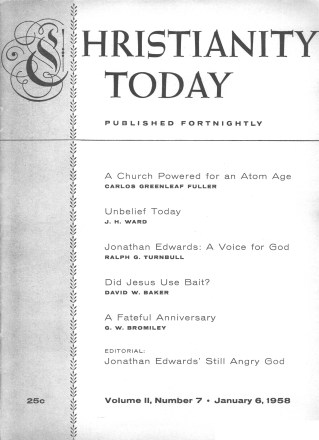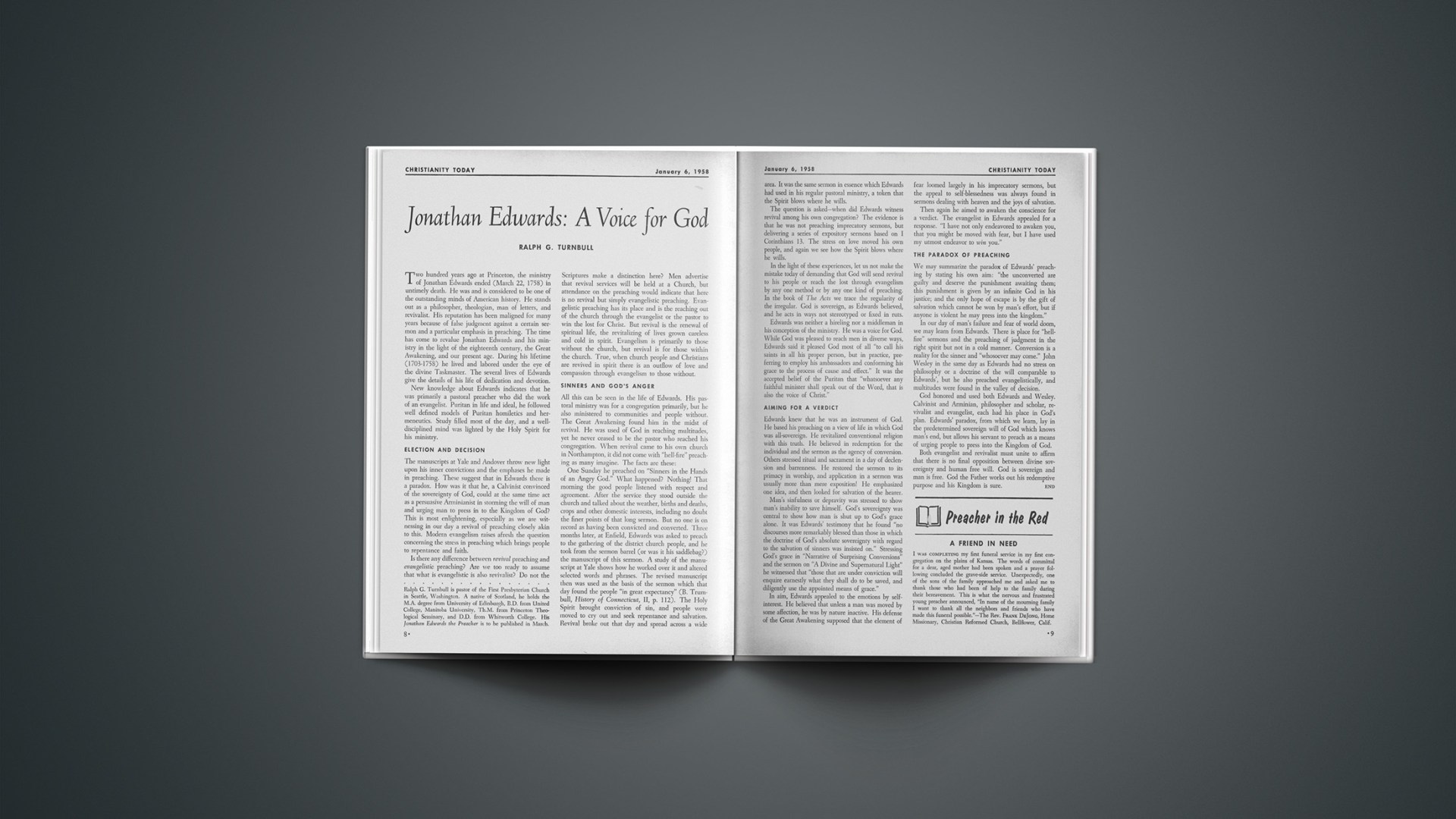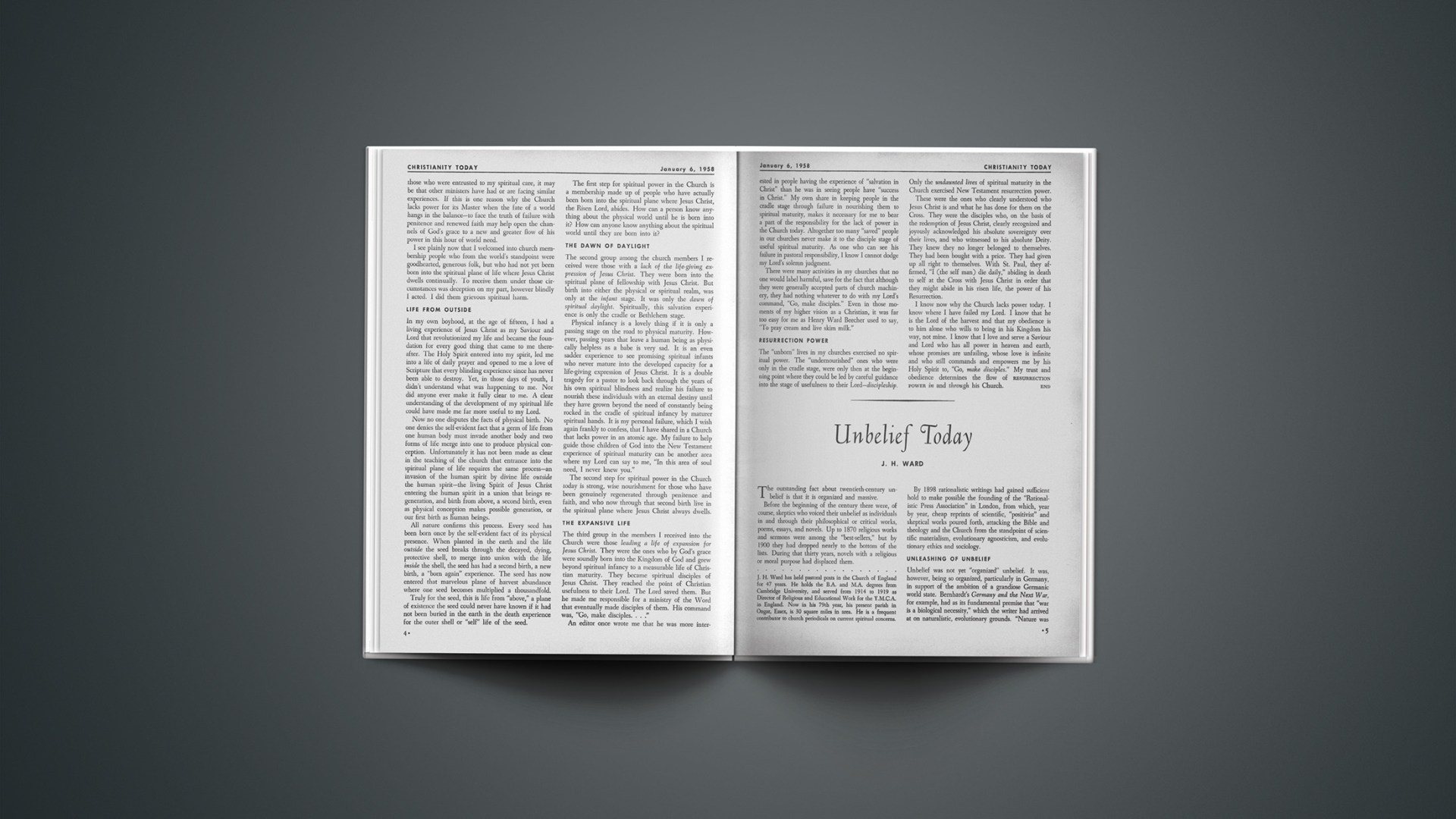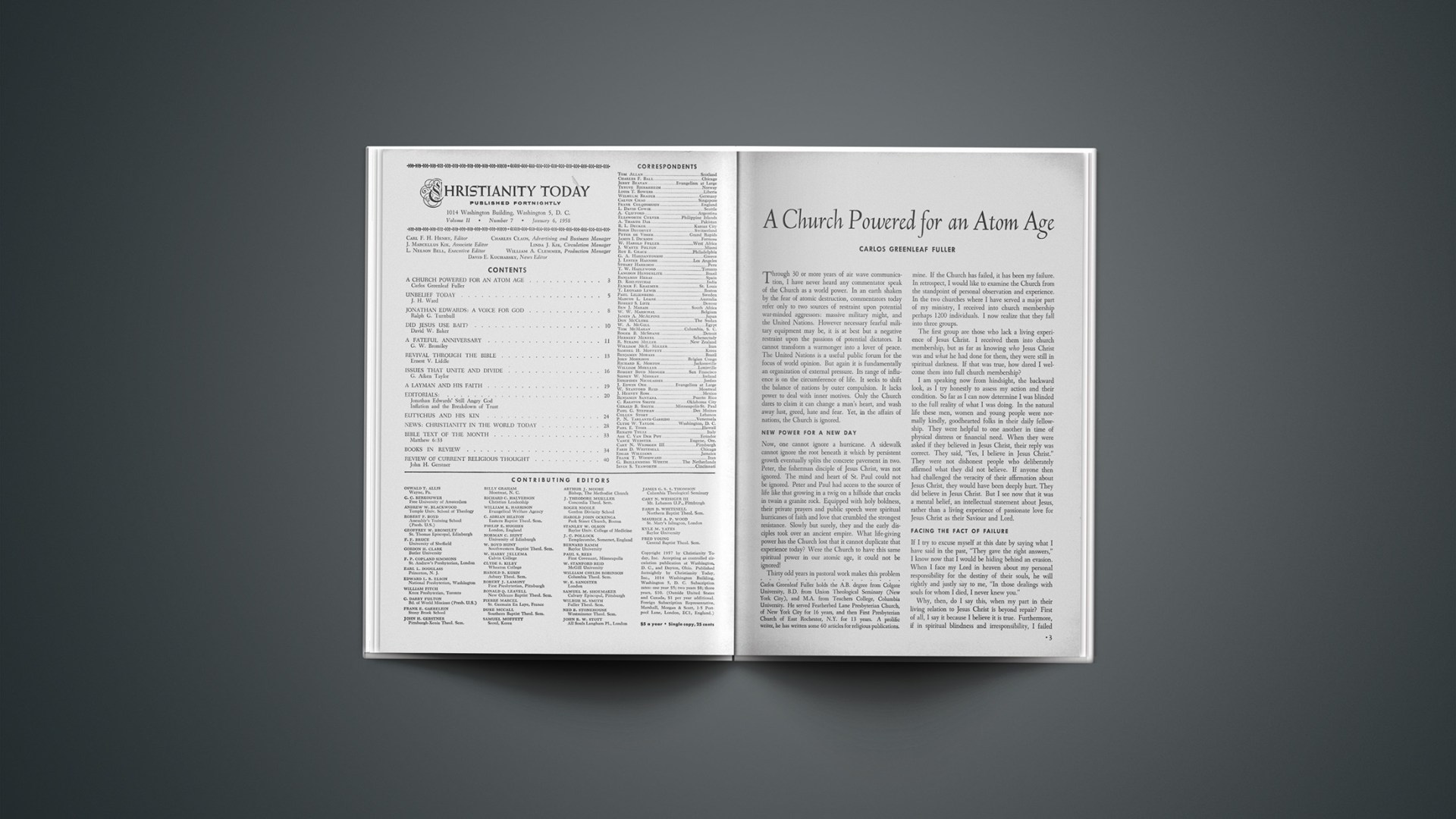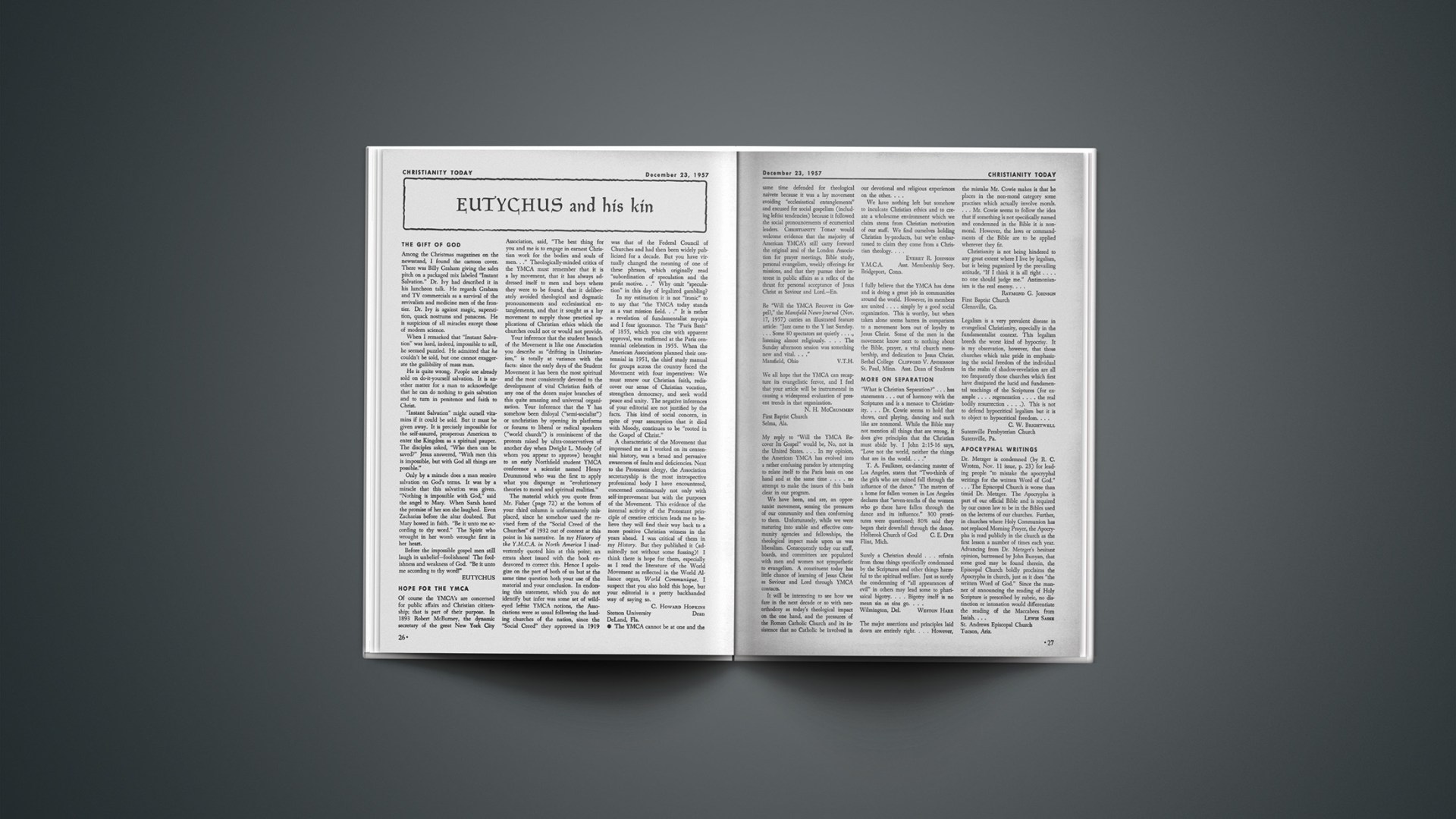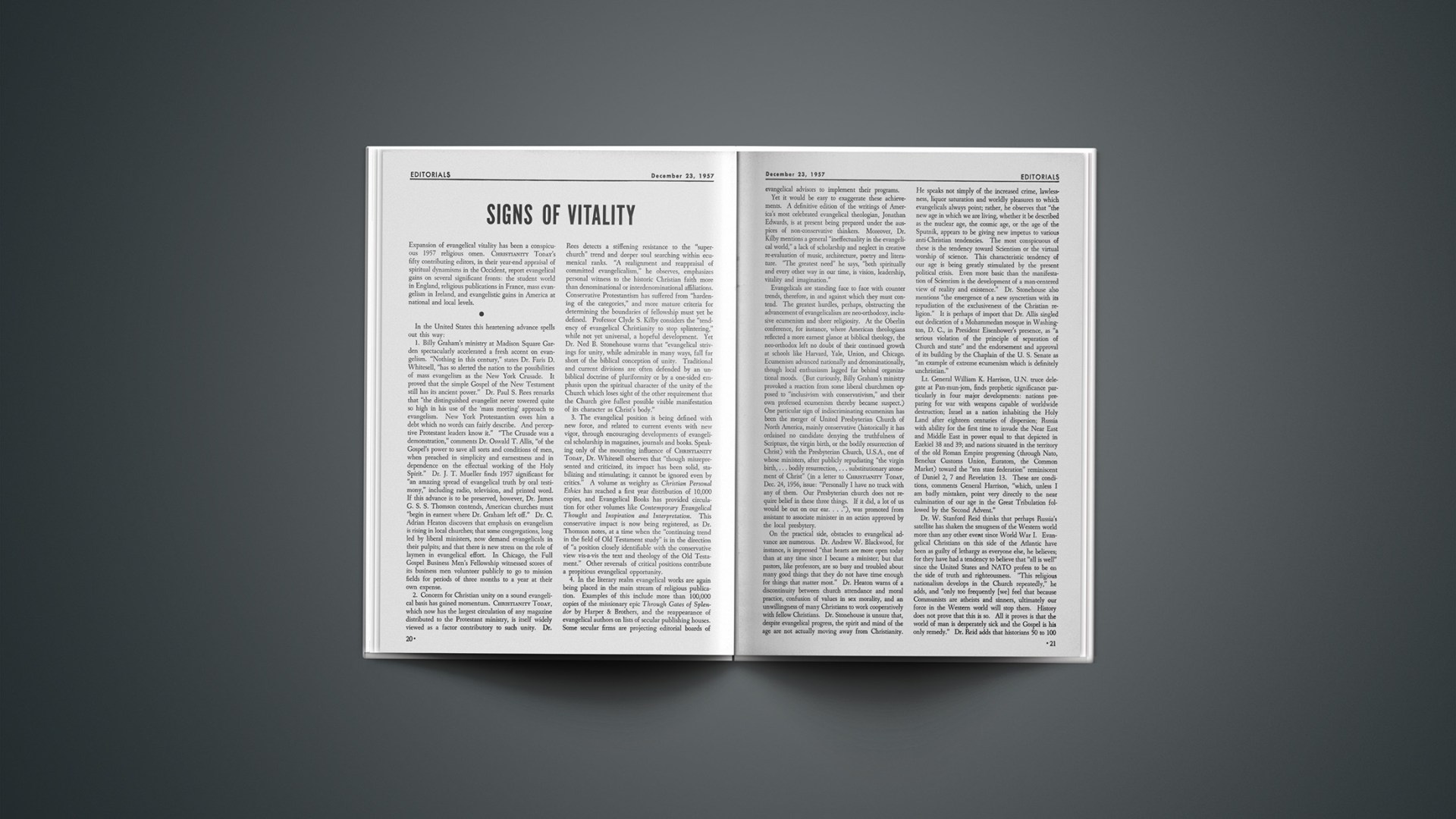Not long ago I heard the titular head of a large missionary organization say that medical aid was the “bait” by which his group hoped to catch men and give them the Gospel. Some of his hearers protested, but one of them, a doctor, immediately came to the speaker’s defense: “Of course it is right to use bait. Jesus used plenty of it, both in his words and in his miracles.” But did he?
There is no doubt that the Christian Church has often used bait. Everyone knows the sorrowful story of the rice Christians of China, the free meals and lodging offered in a score of missions on skidrow, the lurid advertisements which have featured the dramatic conversions of former gangsters, wiretappers, communists, and convicts. The other day I saw the words “air-conditioned” sending forth a particularly fervent appeal in red letters from the bulletin board of a church in the deep South. We are all familiar with the appeal of spectacular buildings, magnificent music, special programs, and daring sermon subjects.
Spiritual Resources
Leonard M. Outerbridge in his Lost Churches of China says: “Seldom has the church dared to trust its cause solely to its innate character and its own spiritual resources and message.” And Walter Lippmann has reminded us in his Preface to Morals that if men had the “certainty which once made God and his plan as real as the lamppost,” and were sure “that they were going to meet God when they go to church … there would be no complaint whatever about church attendance. The most worldly would be in the front pews, and preachers would not have to resort to desperate expedients to attract an audience.”
Whatever may have been the policy of his followers in using bait, did Jesus use it? Can one honestly point to anything he ever did or said which shows that he looked upon the practice with favor, or used it himself?
Immediately there come to mind his words: “As ye go, preach, saying, the Kingdom of heaven is at hand. Heal the sick, cleanse the lepers, raise the dead, cast out devils: freely ye have received, freely give. Provide neither gold, nor silver, nor brass in your purses, nor scrip for your journey, neither two coats, neither shoes, nor yet staves, for the workman is worthy of his meat” (Matt. 10:7–10). The simplest interpretation of these instructions is that Jesus’ followers were not to use bait. Healing the sick, cleansing the lepers, raising the dead, and casting out devils were to be the fruitage of their work. These were to be the consequences which followed the preaching of the Gospel. In no case were they to be dangled before the sick and needy as bait for the purpose of gathering an audience to hear the Word!
As far as I can discover, there is no instance recorded in Holy Writ where any of the earliest Christians did otherwise. Not once do we read of any of the Apostles first rallying a crowd around a “wonder” like a magician or a medicine-man at a carnival, and then preaching the Gospel.
In not using bait, the earliest Christians were not only following the instructions of our Lord, but his own example. What were miracles to men were not miracles to him. They were merely his work. “My Father worketh hitherto, and I work” (John 5:17).
Bait Disguises The Gospel
The feeding of the five thousand was not bait. It came as a total surprise to Jesus’ audience, even to his closest followers. When some of them would have had it as bait, he rebuked their misrepresentation of it: “Ye seek me, not because ye saw the miracles, but because ye did eat of the loaves, and were filled” (John 6:26). The “bait” had already degenerated into its grosser, lustful components, as mere bait always does, for it is chiefly of the flesh. “Labor not for the meat which perisheth, but for the meat which endureth unto everlasting life, which the Son of man shall give unto you” (John 6:27).
Bait is for those who would catch men as game, and must needs disguise the hooks bent for their capture. The Gospel is not for man’s enslavement, but for his liberation. When purely preached it will spread everywhere of its own essence, which is the power of God. If the acceptance of the Gospel depends upon the bait that is used, our cause is lost, and men will be taken by another Gospel. For in the art of manufacturing baits, baits having great allure, even with miracles and wonders, we are no match for the enemy.
If we find that we have to use bait in order for the Gospel which we preach to be heard and effective, maybe Walter Lippmann is right. Maybe our preaching still has the form of the old Gospel, but has lost its power. If so, help lies not in the use of bait, but in a recovery of the power of God.
The Rev. David W. Baker is an ordained minister in the Presbyterian Church U.S.A., and holds the Th.B. degree from Princeton Theological Seminary. He also holds the M.D. degree from University of Pennsylvania Medical School, and is currently practicing Christian counseling in the Philadelphia Presbytery, where he does interim preaching, and lectures in Psychology at the Temple University School of Theology.


